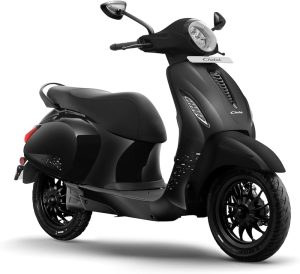Toyota Engine Reliability Analysis

What comes to mind when you think of Toyota? High quality? Durability? Affordability? Long-term resale value?
There’s a reason this Japanese brand of vehicles has become the bestselling car manufacturer in North America (as of December 2017). Since Kiichiro Toyoda founded Toyota Motor Corporation in Japan in 1937, this carmaker, which employs more than 360,000 employees around the world, has established itself as one of the world’s most reliable car manufacturers.
In fact, Toyota makes more money every year than Honda and Nissan combined. The company sold 2,434,515 vehicles in North America in 2017, asserting its dominance in the vehicle market. Toyota is also known to spend $1 an hour on R&D around the globe, and the Toyota brand can be found in 170 countries.
So, what makes Toyota vehicles so reliable? There are many parts to this answer, which we’ll outline in detail below. We’ll also go over some of the company’s practices in their design and manufacturing process for developing and manufacturing engines. Lastly, we’ll provide real-life examples of engines already produced that have shown amazing reliability and durability.
What sets Toyota apart?
There are a number of factors that set Toyota engines apart from those of other car manufacturers, the main one being their durability and lifespan.
The vehicles’ durability and longevity are largely due to the company’s manufacturing model, which is based on the philosophy of kaizen, as well as its approach to production and design. In Japanese, kaizen means “change for the better” or “continuous improvement.”
Since 1960, this philosophy informally served as the company’s foundation for its corporate culture, and it was in 1992 that the principles of kaizen philosophy were included in the Toyota Production System’s official description.
Kaizen is all about continuous improvement. It involves all employees in the company’s efforts to improve the production process. This philosophy has served as the Toyota Production System’s cornerstone, and it’s widely believed that kaizen is also the source of the company’s competitive advantage.
Although several carmakers have tried to incorporate Toyota’s approach into their workforces, none of them have really been successful. Many believe that this is due to the fact that Toyota’s philosophy is so heavily ingrained in the company culture.
Other factors that separate Toyota from its competitors include:
- Focus on quality over profits – This closely relates to the company’s philosophy of kaizen, which holds that the quality of the vehicles being produced trumps everything else. Toyota is known for its laser-beam focus on product perfection, which has maximized the desirability of its products. Unlike many other companies, especially American ones, it’s more interested in manufacturing high-quality products than making short-term profits.
- Long-term management – In many large carmakers, it’s not uncommon for senior management to stay in place for the short term. However, this is not the case for Toyota, where senior management remains for the long run and plans far ahead.
- A careful approach to change – Instead of impressing consumers with major changes in design in every new vehicle they release, like many of their counterparts, Toyota limits innovation in each new vehicle in their efforts to maintain durability and quality.
It should come as no surprise that Toyota is usually at or very near the top of survey rankings for reliability. The carmaker, along with its luxury division Lexus, consistently ranks in the top 10 in the Consumer Reports Annual Auto Reliability survey.
Plus, ownership comes at a competitively low cost, thanks to its efficient manufacturing process.
Another reason that Toyota typically tops surveys for reliability and popularity is its many years of intelligent marketing. Although founded in Japan, the company, over the years, has made a concerted effort to create an “American” image and appeal to American and global consumers.
This effort has paid off in a myriad of ways. Although Toyota is known to value quality more than profits, the company is one of the most profitable car companies on the planet, and its profits are only steadily increasing. Its operating profit climbed 36% to $24.61 billion in the fiscal year that ended on March 31, 2022, exceeding its previous record from the fiscal year that ended on March 31, 2016. Toyota boasted an operating profit margin of 9.5% (8.1% the previous year).
Examples of Toyota engines
As you well know, Toyota is basically synonymous with reliability. That’s because Toyota vehicles run for years, with an average mileage of more than 200,000 miles. And inside every reliable vehicle is a reliable engine.
When purchasing a Toyota, the consumer is buying a quality product that will last them for several years. One of the primary reasons for this longevity is the engines.
Here are some examples of some of the best Toyota engines ever made and some information about what makes them so durable and reliable:
- The 2JZ-GTE – This is the well-known turbocharged inline 6-cylinder of the Toyota Supra. An exceptionally durable engine, it’s made up of aluminum heads, a cast-iron engine block, and some of the smoothest acceleration that can be found inside a twin-turbo engine.
- The 22R-E – Toyota’s reputation for developing strong, reliable trucks were largely solidified by the creation of the 22R-E. Introduced in 1982, this engine became the standard engine for 4Runners and Toyota pickups in 1984. The company continued offering the 22R-E in these vehicles all the way through 1995. The final version of the R series of engines, which was introduced in 1953, was the 22R-E. Not unlike the Chevrolet’s small-block V8, Toyota’s R engine enjoyed a long, colorful history. Needless to say, the 22R-E was a fitting finale to one of Toyota’s longest-lasting production runs.
- 4U-GSE – Known for being the engine behind the Scion FR-S (aka GT-86) rear-wheel-drive coupe, the 4U-GSE, which is a horizontally opposed 4-cylinder, was co-developed by Toyota and Subaru. The 4U-GSE combines Toyota’s D4-S combination port and direct injection system and Subaru’s well-known “boxer” design, creating a one-of-a-kind engine that reflects Toyota’s culture of producing high-quality products.
- 1GD-FTV – One of Toyota’s newest engines on the market, the 1GD-FTV is an extraordinarily efficient 4-cylinder 2.8L diesel engine. You can find the 1GD-FTV, which produces 330 ft-lb of torque and 174-horsepower, on Land Cruiser Prado SUVs and Toyota Hilux trucks. This engine is a replacement for the 1KD, with 25% more torque and 15% more fuel efficiency than its older counterpart. Thanks to the engine’s use of selective catalytic reduction (SCR), NOx emissions have been significantly reduced (around 99%). With its plethora of state-of-the-art features, the 1GD-FTV is probably the most advanced diesel engine in the entire auto industry.
Toyota engines are celebrated for their durability and reliability. Since the company’s founding in 1937, Toyota has established a reputation for being one of the most reliable car manufacturers in the world.
Its reliability can largely be attributed to the company’s corporate culture, based on the Japanese philosophy of kaizen, which means “change for the better” or “continuous improvement.” But other qualities that separate Toyota from its competitors include its cautious approach to change, its focus on the quality of profits, and its stable long-term leadership.
From the 2JZ-GTE to the 1GD-FTV, Toyota engines have proven to be some of the most trustworthy engines in the auto industry, and the company will most likely continue being a leader in vehicle and engine quality for several years to come.






